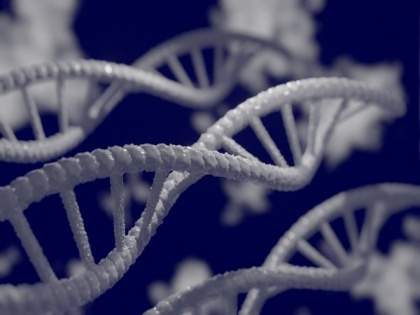Researchers find RNA molecules control repair of human DNA in cancer cells
By ANI | Published: February 27, 2022 07:27 PM2022-02-27T19:27:58+5:302022-02-27T19:35:26+5:30
A recent study has shown how certain RNA molecules controlled the repair of damaged DNA in cancer cells, a discovery that could eventually give rise to better cancer treatments.

Researchers find RNA molecules control repair of human DNA in cancer cells
A recent study has shown how certain RNA molecules controlled the repair of damaged DNA in cancer cells, a discovery that could eventually give rise to better cancer treatments.
The study was published in the journal, 'Nature Communications'.
New research demonstrated that RNA molecules have a much broader function and can play a key role in the development of disease.
One such disease is cancer, where damage to our cells' DNA could be a contributing factor. DNA damage occurs and was repaired continuously. But, in some cases, it could lead to carcinogenic mutations in the genome. A fundamental understanding of how our cells repair DNA is, therefore, key to the design of new treatments.
In this recent study, the researchers examined how certain RNA molecules affected the ability of the cancer cells to repair radiation-damaged or broken DNA strings. They discovered that two molecule types-small Cajal body-specific RNA 2 (scaRNA2) and WRAP 53-interested to regulate the enzyme DNA-dependent protein kinase (DNA-PK), which in turn affected the DNA-repair mechanisms.
Corresponding Author Marianne Farnebo, a researcher at the Department of Cell and Molecular Biology and the Department of Biosciences and Nutrition at Karolinska Institutet said, "Our findings show that some RNA can bind to an enzyme, thereby controlling DNA repair."
The researchers hope that the results can enhance understanding of the part played by RNA in DNA repair and cancer.
"This can open up new approaches to the treatment of cancer, such as using synthetic RNA molecules to stimulate cell death in cancer cells," said Marianne Farnebo.
( With inputs from ANI )
Disclaimer: This post has been auto-published from an agency feed without any modifications to the text and has not been reviewed by an editor
Open in app